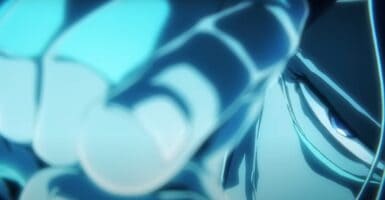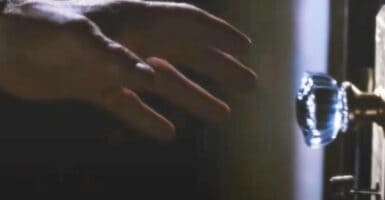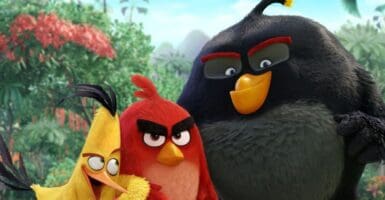Hubble Telescope Is In Danger And Things Are Looking Very Bad For Its Future
An increasing number of satellites are interfering with the Hubble Telescope, which could eventually lead to it needing to be retired.
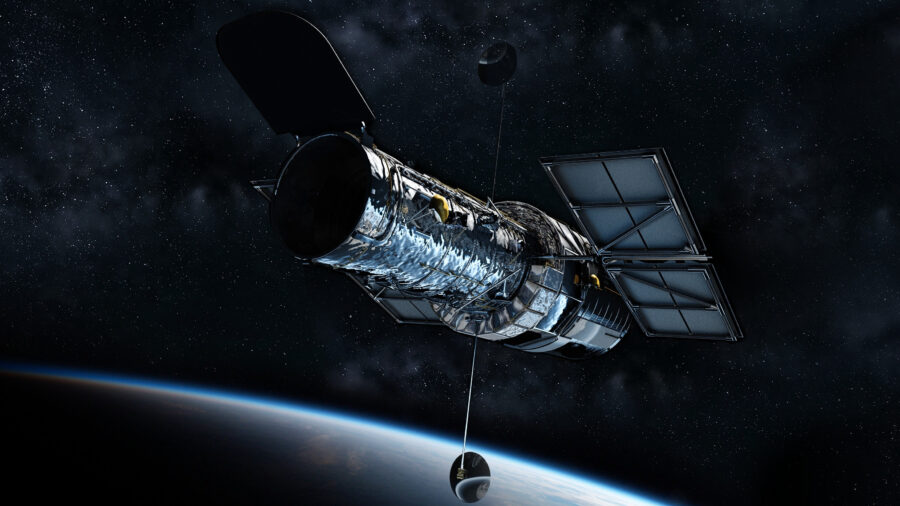
Is there anything worse than when a perfectly good photograph of you and your friends is ruined by a photobomb? Well, imagine that on a cosmic level — a recent New York Times article points out concern over how the Hubble Telescope is being photobombed by other satellites! This may not seem like a big deal at the moment, as the streaks in the sky can be removed by standard data reduction techniques, but the long-term implications are staggering.
The Hubble Telescope has so far accomplished many impossible feats in its over 30-year run. Hovering just 335 miles above Earth, the floating observatory is responsible for countless unforgettable photos, such as Pillars of Creation, which was snapped in 1995 and is considered to be one of the most iconic photos taken by the Hubble Telescope. The telescope’s celestial reach is responsible for expanding our understanding of outer space and the seemingly endless expanse of the universe.
Since its launch in 1990, there has been a significant increase in satellites being launched into orbit by both governments and private companies. One of the culprits is Elon Musk’s SpaceX and their Starlink satellites, which will expand their fleet to roughly 42,000 satellites. While SpaceX has developed methods to darken their satellites by using mirror film, scientists are worried that the light being redirected by this film will adversely affect the situation for space-based telescopes like the Hubble Telescope.
While research suggests that the Hubble Telescope has a 5.9 percent chance of picking up another satellite image as of 2021, the issue the telescope will run into is that the number of satellites being put out by SpaceX, Amazon, OneWeb, and Galaxy Space, which will increase the issue by tenfold. This issue of obstruction is further compounded by the fact that this new generation of satellites has a wider orbit than the Hubble Telescope, which has a relatively low orbit in comparison.
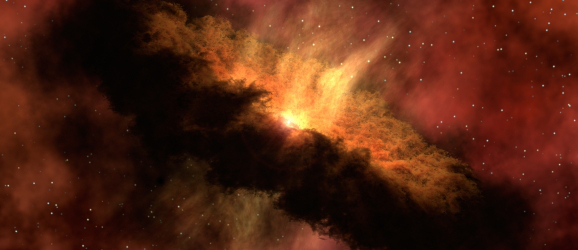
Despite all of the obstacles the Hubble Telescope is facing, it’s far from being rendered useless. Astronomer Mark McCaughrean weighs in on the fate of the telescope, stating it “might be 10 or 20 years away, but it’s not inconceivable that there’s a point in which you say, ‘let’s not bother anymore.'” The fact of the matter is that there are too many variables to know for sure, and only time will tell if we’ll have to retire the Hubble Telescope.
Harvard-Smithsonian astronomer Jonathan McDowell weighs in and expresses more worry than his contemporary, saying, “There will be science that can’t be done. There will be science that’s significantly more expensive to do. There will be things that we miss.” And he’s not wrong to be concerned; we’re in a modern-day space race, and there will eventually come a time when NASA will have to render the Hubble Telescope obsolete.
In an ideal world, we’ve still got decades of the satellite producing awe-inspiring images for us to try to comprehend. Despite the obstacles presented, the Hubble Telescope is still making waves, and just last year it helped discover the earliest known star ever seen. In the meantime, we just have to wait and see what happens. The Hubble Telescope is responsible for vastly understanding the nature of the known universe, and its legacy will continue to amaze us for years to come.



